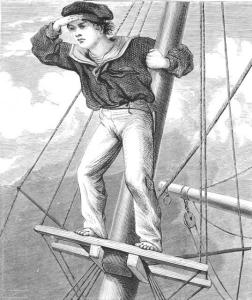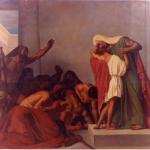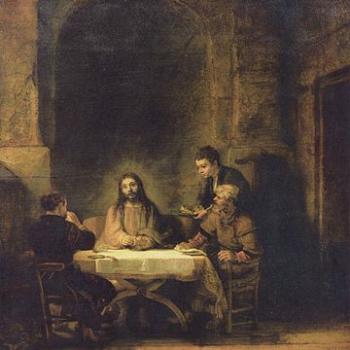
This post reflects upon my family’s journey with TBI and how it’s important for all of us to be on the lookout for hints and clues in support of holistic health. We need to pay close attention.
I was speaking with our family medical consultant and palliative care specialist, Dr. Robert Potter, the other day. Dr. Potter (M.D., Ph.D.) had called to receive an update on my son Christopher’s situation. Christopher endured a traumatic brain injury on January 21, 2021. We ended up discussing the importance of being very attentive to hints and clues in support of holistic health.
During the conversation, I informed Dr. Potter of a few ‘highlights’ of our time with Christopher this week. First, a respiratory therapist (RT) who comes in to visit Christopher when he has time to spare in his busy routine shared with Christopher’s mom about one special encounter. He reported how delighted he was when Christopher gave him a big smile during one of the visits. It was such a sudden, wonderful surprise to experience such warmth from Christopher that welled up from deep within, far deeper than any secretions the RT can suction.
Second, a restorative aid (RA) and a certified nursing assistant (CNA) who also engage Christopher in a deeply personal way were replacing his gown with a shirt so I could take him outside his room in his wheelchair to sit and read to him by the large windows in the dining room overlooking the freshly fallen snow.
And yet, Christopher was holding up our departure. He would not cooperate with the RA when she wanted to put his right arm through the sleeve. He pulled his right arm to his chest and moved his head to the left and then to the right. The CNA, who is a certified nursing archangel, one of Christopher’s lead guardian angels, suggested with a giggle that Christopher was indicating “No” with the head movement from side to side. Why? She said that the RA was not following the normal routine. The CNA noted how she always starts with putting Christopher’s left arm through the sleeve before putting the right one through the other sleeve. The right arm is more mobile and will at times assist the CNA in pulling the left arm through the sleeve.
The two caregivers noted that Christopher then got playful and smiled while continuing to resist cooperating with them. The RA later said to me that he must have been a trickster as a child. Now they know a bit of what it was like raising Christopher! When he doesn’t want to budge, he won’t budge, not even if he’s wearing a smile! It takes all one’s strength and skill in negotiations to get him to move in those moments.
Third, following our wheelchair excursion around the facility, I helped the same CNA get Christopher back into bed with the use of the Hoyer Lift. As she was repositioning him, I said goodbye to Christopher to head home. The CNA encouraged Christopher, “Say goodbye to Dad.” As I exited the room, he let out a loud, long grunting sound, which she interpreted as “Goodbye!” and which I interpreted as “Good riddance!” Christopher has spoken coherent words in context to her before, but never to me. Perhaps this was a coherent, contextual grunt, as coherent as grunts can possibly be!
Dr. Potter listened attentively to my recounting and then offered another interpretation of Christopher’s turning the head to the left and then to the right. Christopher may have been instructing the RA to start with his left arm and sleeve and then put his right arm through the right sleeve.
That remark alone showed that Dr. Potter doesn’t dismiss CNAs and my observations, but if anything, adds complementary and nuanced perspective to them. That is quite something given how he was a nationally recognized pioneer in palliative care and is Senior Scholar Emeritus for the Oregon Health and Science University Center for Healthcare Ethics.
No doubt, his attentiveness to the caregivers working 24-7 with patients and their loved ones is one of the reasons he became so good at his trade. As he told me yesterday as we reflected upon these caregivers’ observations: we should “not ignore the small clues. Every one ought to pay close attention to the small clues of what happens in and around the person. I miss so much if I do not follow my mother’s advice: ‘Pay attention, Robert.'” While his mother has long passed from the scene, her wise counsel has not left him. In fact, he’s passed it along to me.
After reflecting on the three events, I told the good doctor I understand that on their own the three events do not tell us a great deal. Moreover, they may have been sheer coincidence rather than coherent and contextual occurrences. While Dr. Potter acknowledged this possibility he went on to say these are possible hints and cues that should not be dismissed. There have been numerous occasions in the past where Christopher has consciously responded in context so that we should not dismiss these recent incidents. We are adding observations to observations, compiling them, assessing them in search of patterns and progress in hopes of meaningful recovery.
While we must account for the possibility that some attentive caregivers will project conscious control where there is none, we must not throw out the baby or the TBI patient with the dirty prognosis bathwater. After all, we have already shown according to Dr. Potter based on what has transpired to date that the early well-intentioned though premature prognoses of Christopher’s prospects were completely erroneous.
Only those who are watching Christopher closely and attentively engaging him as a person will see these possible signs of conscious awareness and control. All too often, I find a lack of careful, conscious awareness on the part of others tending to Christopher. They can easily be going through the basic required motions and unfortunately miss the hints and clues that Christopher is disclosing to them albeit through the veil of TBI. Christopher is not motionless or simply going through the motions or seldom responding. He is engaged far more often than casual observers will discern.
But there are several caregivers who think very critically and charitably and are keenly attentive to Christopher’s various mannerisms and movements, like the three staff members mentioned in this post. They look for small hints and clues. They go into Christopher’s room looking to engage and eagerly watching to see how he might respond.
It reminds me of Jesus’ words: “Seek and you shall find” (See Matthew 7:7-8). Now of course, the Lord is speaking of praying to God and being attentive to spiritual hints and clues of God’s providential responsiveness and to expect God’s provision. But if we are not looking, or refusing to look, we might miss God’s hints and clues of responsiveness and God’s provision.
What is needed in the discipline of medicine and spirituality is good old detective work wherein we are always on the lookout for hints and clues—no matter how small—of meaningful responses that help us determine what has transpired and what is going on so that we might continue to grow. In other words, we need to pay attention.
Recently, I shared with leaders at Christopher’s facility a video of Christopher doing range of motion exercises in response to my prompts and without any help from me. He slowly moved his right arm forward and back several times in response to my requests. Dr. Potter had watched the video and was looking at Christopher’s face as well as the arm movement. He indicated it was surely an occasion based on what he observed that demonstrated Christopher was operating with conscious control.
There have been times when caregivers who are not trained in palliative care appear to dismiss what I share with them from Dr. Potter. The pleasant though disengaged and vacant look I get in response at times is, “Isn’t that nice? It’s so good you have wishful thinking to hold on to.”
A medical administrator, who is an able manager and more attentive than most, said it is good that I was able to catch Christopher’s active range of motion on tape. When she added with the best of intentions that Christopher does not usually manifest such signs, so it is helpful to record those rare moments, I gently pushed back. While acknowledging that Christopher’s conscious, controlled actions are far fewer and between than they are for most people, he could be acting in a conscious and controlled manner far more than any of us realize.
It reminded me of the old tree in the forest philosophical puzzle. I have never been of the opinion that if a tree falls in the forest and there is no one there to see or hear it, it never fell or made a sound. In the case of hearing, we first need to get clear on the meaning of the word “sound.” If “sound” entails vibrations made in the air, then “yes,” a sound was made. If “sound” is only that which another person hears, then some would say “no,” since no one is there to hear it (Refer here for a discussion of this theme).
But even if that were the case, we shouldn’t reject the possibility that something or someone is always there to see and hear the tree fall. In my estimation, there is always someone there to see my son’s hints and clues of conscious control. Take for example the birds of the air or other animals who are there in the forest when the tree falls. Or with a nod of acknowledgment to Bishop Berkeley’s philosophical judgment that “to be is to be perceived,” God perceives it to be.
Similarly, God, and I might add the angels above, are there to perceive my son operate no matter the hour, even in the dark of night. They see and hear the tree fall. They see him move his limbs and hear him groan, and on occasion speak, when no one else is around, not even a certified nursing archangel. God is always on the lookout, paying attention for hints and clues of conscious control.
You may not resonate with Bishop Berkeley’s philosophy of immaterialism. You may even kick a stone in attempted refutation as Samuel Johnson did following one of Berkeley’s sermons, retorting, “I refute it thus.” But please don’t seek to refute the need to be on the lookout and pay attention all the time for hints and clues for the sake of holistic health. Those who don’t pay close attention don’t simply kick stones. Sometimes they even kick the bucket, whether their own or someone else’s.
For the most part, staff do not visit Christopher unless they are on rounds, the call light is on, or we request their presence and help. For the most part, they are in and out. To be fair, they have so much to do. Christopher is one of many patients requiring great care. Even so, only a few of them are on the lookout for possible hints and clues of healing and growth in mental capacity during their rounds.
I remain forever grateful for that select few who engage Christopher with a sense of wonder and intuitive skill to interpret what they see and hear at Christopher’s bedside. They do more than go through the required motions and are attentive to Christopher’s person. They think critically and care-fully, discerning the possible hints and clues. Such caregivers reflect God, who does not hover above, but delves below the surface of the skull far beyond where MRIs can probe. God knows whether there are many more occasions when Christopher is responding with conscious control than what others have witnessed and reported to us, even the best of palliative care specialists and neurologists.
Whether it is with palliative care or spiritual care, I dare not discount the possible hints and clues. Christopher has already demonstrated many times over there is more going on consciously in his brain than what many less observant and less critical thinking types are able to discern.
It takes a special skill to penetrate and interpret gestures and groans. So, it is with God. The Spirit groans in pleading with God for us in ways that words cannot express (Romans 8:26). If the Spirit groans in a manner that makes even more sense to God than words given the depth and complexity of the divine mystery, surely, I should account for the complexity of the brain and how Christopher’s groans and subtle movements may be saying more than most of us can critically, clearly discern.
One thing is certain. We must train ourselves to move beyond merely operating from passive range of mental motion in caring holistically for others and ourselves. Pay attention. We must seek so that we might possibly find signs of meaningful spiritual as well as neurological recovery. It’s always important to be on the lookout for hints and clues in support of holistic health.
For those who are interested in following the journey with Christopher on TBI more closely, you can find all the posts over the three-year sojourn at this link. Thank you for your prayers!














